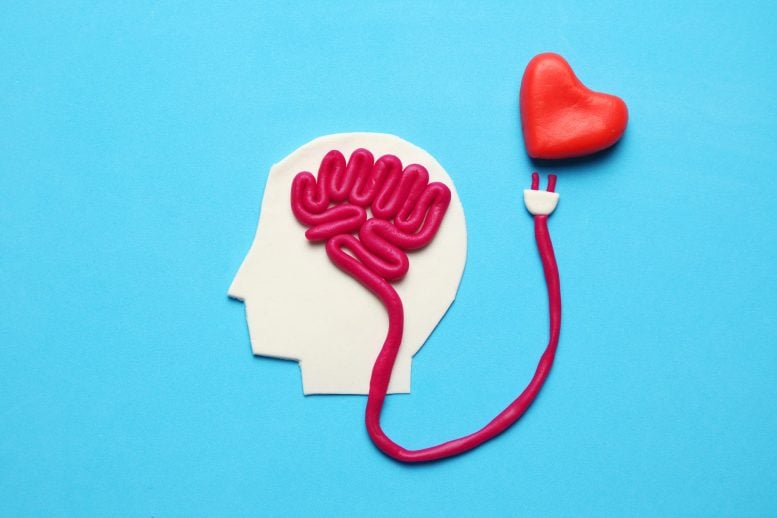

Cardiovascular diseases, including heart failure, atrial fibrillation, and coronary heart disease, are closely linked to increased risks of cognitive decline and dementia.
Managing these conditions through early detection, lifestyle modifications, and targeted treatments can help mitigate cognitive impairments and maintain brain health.
- Previous studies have found that 14-81% of patients with heart failure experience some degree of cognitive impairment affecting language, memory, or executive function.
- Evidence also indicates that people with atrial fibrillation have a 39% increased risk of memory or thinking problems; adults with heart disease have a 27% higher risk of developing dementia; and up to 50% of individuals experience cognitive decline after a heart attack.
- Managing heart health from an early age is important, not only for preventing heart disease but also for protecting brain health and reducing the risk of cognitive impairment in later life.
Cardiac and Cognitive Health
Three common cardiovascular diseases in adults—heart failure, atrial fibrillation, and coronary heart disease—are associated with cognitive impairment and an increased risk of dementia, according to “Cardiac Contributions to Brain Health,” a new scientific statement from the American Heart Association published today (October 10) in the Association’s journal, Stroke.
The statement reviews the latest research on the relationship between cardiovascular and brain health, including cognitive impairment and neuropsychological dysfunction. It highlights the critical interconnectivity between the heart and brain and underscores how crucial this relationship is for overall health.
The Impact of Heart Health on Cognitive Functions
“Stroke and cognitive decline, both major determinants of brain health, are chronic and disabling conditions that have a dramatic impact at the individual and societal level,” said Chair of the statement writing group Fernando D. Testai, M.D., Ph.D., FAHA, professor of neurology and rehabilitation and vascular neurology fellowship director at the University of Illinois College of Medicine and stroke medical director at the University of Illinois Hospital in Chicago. “Managing heart health from an early age is important to prevent cardiovascular disease and cardiac events, protect brain health and reduce the risk of cognitive decline in later life.”
Testai added, “Dementia is commonly seen as an incurable and relentless disease that cannot be prevented. Evidence shows, however, that adopting a healthy lifestyle and identifying and treating vascular risk factors early may help preserve normal brain function and reduce the burden of Alzheimer’s disease and other related dementias.”
Cognitive Impairments Linked to Heart Failure
Heart failure is a major public health issue with underlying causes that include high blood pressure, obesity and Type 2 diabetes. Heart failure is linked to cognitive impairment, affecting tasks like self-care and medication management, especially in older adults. A meta-analysis of previous studies found that almost 50% of people with heart failure experience some kind of cognitive impairment that may impact language, memory and/or executive function. The rate of cognitive problems tends to be higher in those with more severe types of heart failure.
Heart failure may lead to brain injury in a number of ways. Reduced blood flow can cause mini-strokes or silent brain injuries. Chronic inflammation and neurohormonal activation, which work to maintain the brain’s environment, may also contribute to brain damage. Obesity and sleep-disordered breathing are common conditions among people with heart failure and are also associated with cognitive dysfunction. Brain changes, such as gray matter volume reduction and/or white matter damage, are common in heart failure and contribute to reduced brain function. Emerging evidence also indicates that people with heart failure and people with neurodegenerative diseases such as Alzheimer’s may share genetic variations.
For patients with severe heart failure, cognitive screening is advised before surgical interventions due to the elevated risk of stroke; stroke is known to be one of the most common causes of cognitive decline.
Atrial Fibrillation and Cognitive Risks
Atrial fibrillation is the most common heart rhythm disorder in adults, with the overall prevalence in the U.S. projected to increase from 2.7 million in 2020 to nearly 16 million by 2050. The link between atrial fibrillation and stroke is well-known, however, the connection between atrial fibrillation and cognitive decline requires more research. A large meta-analysis found that atrial fibrillation increases the risk of cognitive impairment by 39%.
Shared risk factors between atrial fibrillation and dementia include high blood pressure, Type 2 diabetes, heart failure, smoking, vascular disease, sleep-disordered breathing and advanced age. These factors cause structural and functional brain changes leading to cognitive decline. Stroke, a major predictor of cognitive impairment, has a direct link to atrial fibrillation. Small brain bleeds, or microhemorrhages, are also more common in people with atrial fibrillation and linked to cognitive decline.
Reduced cardiac output associated with atrial fibrillation (similar to heart failure) may compromise blood flow to key areas of the brain that are responsible for cognitive function. Both atrial fibrillation and Alzheimer’s disease are associated with systemic inflammation, and inflammatory biomarkers are associated with increased risk of blood clots and brain injury. While more research is needed to explore this connection, the observation illustrates the complex interaction between the nervous and cardiovascular systems.
Effective treatment of atrial fibrillation, including the use of anti-clotting medications, rhythm control or catheter ablation procedures, may reduce the risk of cognitive decline. Ongoing studies are investigating whether restoring regular heart rhythm through catheter ablation may reduce cognitive dysfunction compared to medication alone.
Coronary Heart Disease and Dementia
Coronary heart disease significantly increases the risk of dementia and cognitive impairment. A large systematic review of more than 1 million adults indicates that those with heart disease have a 27% higher risk of developing dementia compared to people without heart disease. Up to 50% of people experience loss of brain function after a heart attack. Data from multiple, large-scale studies show a heart attack is linked to a steeper decline in cognitive function, including memory and executive function. Elevated levels of calcium buildup in the arteries are also linked to a greater risk of developing dementia.
Coronary heart disease can harm brain function through various mechanisms. Common risk factors like high blood pressure and Type 2 diabetes cause inflammation that affects the blood-brain barrier and reduces blood flow to the brain, leading to cognitive decline and dementia. Heart disease is also linked to small vessel disease in the brain and reduced brain blood flow, resulting in cognitive impairment. These issues are also seen in patients with Alzheimer’s, indicating a close link between blood vessel damage and brain degeneration. Additionally, genetic factors that increase heart disease risk may also contribute to brain shrinkage and cognitive decline.
Improving vascular risk factors may preserve cognitive performance, though specific effects in patients with coronary heart disease are not fully established. Intensive blood pressure treatment has shown promise in reducing mild cognitive impairment but not dementia. Other studies suggest managing cardiovascular risk factors with lifestyle interventions such as diet and exercise may help maintain cognitive health.
Conclusions on Cardiovascular Health and Cognitive Decline
Testai said, “Although new medications with the potential to treat Alzheimer’s disease are being developed, the medical community is well aware that prevention is better than a cure. More research is needed to confirm and outline how cardiovascular care can improve brain health. In addition, more research is needed to understand the ways gender, race and ethnicity may influence the connection between the brain and the heart.”
“Health care professionals should approach their patients in a holistic manner with an approach to improved heart health throughout their lives. Promoting heart health earlier in life with resources that encourage healthy lifestyles is crucial, and monitoring and managing heart health through resources like the Association’s Life’s Essential 8 are important to reduce the risk of cognitive impairment.”
Reference: 10 October 2024, Stroke.
DOI: 10.1161/STR.0000000000000476
This scientific statement was prepared by the volunteer writing group on behalf of the American Heart Association’s Stroke Council; the Council on Cardiopulmonary, Critical Care, Perioperative and Resuscitation; the Council on Cardiovascular and Stroke Nursing; and the Council on Hypertension. American Heart Association scientific statements promote greater awareness about cardiovascular diseases and stroke issues and help facilitate informed health care decisions. Scientific statements outline what is currently known about a topic and what areas need additional research. While scientific statements inform the development of guidelines, they do not make treatment recommendations. American Heart Association guidelines provide the Association’s official clinical practice recommendations.
Co-authors are Vice Chair Philip B. Gorelick, M.D., M.P.H., FAHA; Pei-Ying Chuang, Ph.D., E.M.B.A., M.S.N., R.N.; Xing Dai, M.D., Karen L. Furie, M.D., FAHA, Rebecca F. Gottesman, M.D., Ph.D., FAHA; Jose C. Iturrizaga, M.D., FAHA; Ronald M. Lazar, Ph.D., FAHA; Andrea M. Russo, M.D., FAHA; Sudha Seshadri, M.D.; and Elaine Y. Wan, M.D., FAHA. Authors’ disclosures are listed in the manuscript.